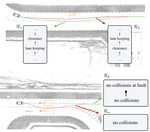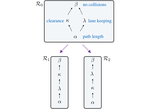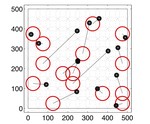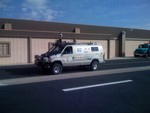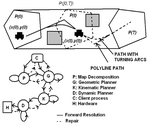Tichakorn (Nok) Wongpiromsarn
Assistant Professor
Department of Computer Science
Iowa State University
I am an Associate Professor in the Department of Computer Science at Iowa State University, where I direct the Autonomous Systems Laboratory. I am also an Amazon Scholar with Amazon Robotics. I received a Ph.D. in Mechanical Engineering from the California Institute of Technology in 2010 under the supervision of Prof. Richard Murray.
My research interests lie in the broad area of computer science, control, and optimization, with a particular focus on formal methods, motion planning, hybrid systems, and distributed control systems. Most of my work involves applying mathematical and computational rigor to solve concrete, real-world problems, especially in autonomy, robotics, and transportation.
My career has spanned both academia and industry. In particular, I was a principal research scientist and led the planning team at nuTonomy (now Motional). As one of the earliest employees, I was heavily involved in the whole software development and release process, from design (interfaces and modules) to implementation (C++ and python), testing, evaluation, and deployment. My work focused on planning, decision making, control, behavior specification, and validation of autonomous vehicles. I also led the Systems Team for Team Caltech in the 2007 DARPA Urban Challenge during my Ph.D.
Interests
- Specification, design, and analysis of cyber-physical systems
- Situational reasoning and decision making in complex, dynamic and uncertain environments
- Modeling, analysis, and optimization of large-scale multi-agent systems
Education
-
Ph.D. in Mechanical Engineering, 2010
California Institute of Technology
-
Master of Science in Mechanical Engineering, 2006
California Institute of Technology
-
Bachelor of Science in Mechanical Engineering (Summa Cum Laude), 2005
Cornell University
